The Power of Personal Voice
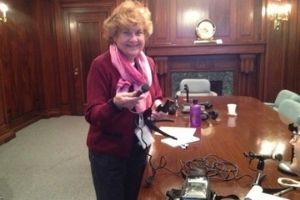
A blog post by Assistant Director Deborah Cardin.
On Monday, March 18, JMM staff members and volunteers gathered for an oral history training workshop.
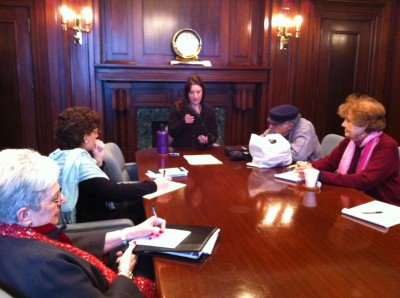
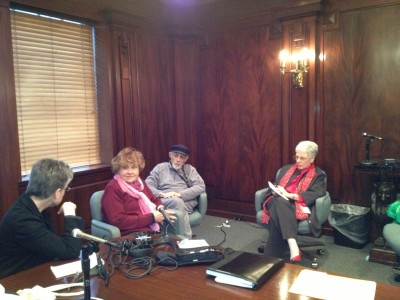
With more than 700 interviews in our collections, oral histories form an important part of the JMM collections. Like the artifacts in our collections, JMM oral histories are eclectic in nature and range in topic from major historical events like the Holocaust and civil rights era to more mundane subjects such as shopping in Jewish owned businesses and daily life in Maryland’s small towns.
The goal of this workshop was to teach proper techniques for conducting interviews as well as the mechanics of using our recording equipment.
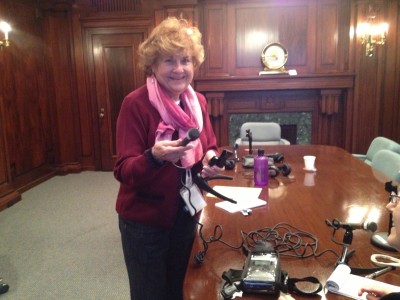
When I first started working at the JMM, we used cassette recorders that were considered top of the line when they were originally purchased. Today we use digital equipment that allows for greater flexibility in how interviews can be used. While the new equipment produces interviews that are higher quality than the older models, the technology can also be intimidating to volunteers (and to staff as well).
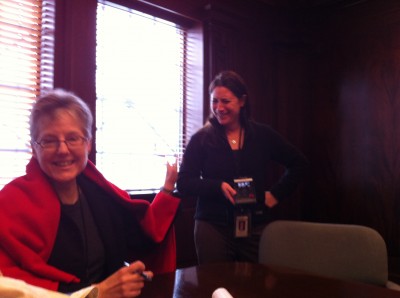
Hence the importance of our training.
Oral history interviews provide listeners with the opportunity to hear first-hand accounts of specific historical events. As listeners of the acclaimed Story Corps project are aware, the subjects of interviews do not need to be famous – nor do the topics under discussion need to be momentous events from long ago – in order for the interview to be compelling. (To learn more and to listen to archived interviews, visit storycorps.org/)
A search through our oral history database turns up interviews with Jewish business owners, former residents of East Baltimore (whose memories can be found in our Voices of Lombard Street exhibit),
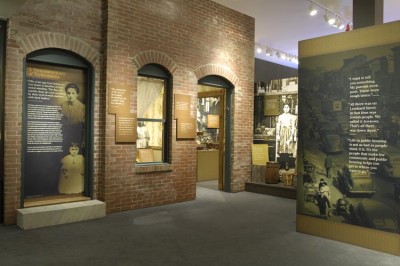
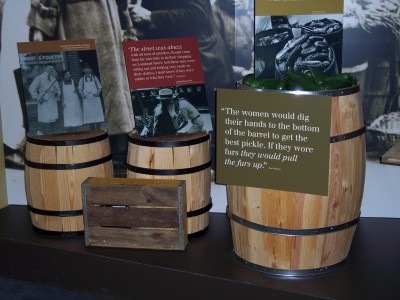
and food mavens (whose favorite Jewish food traditions and recipes helped inform the recent Chosen Food exhibit.) We also have on file interviews with Jacob Beser who discusses his World War II military career that included flying in both missions that dropped atomic bombs on Japan (OH 0141 and OH 0331)and Mitzi Swan (OH 0658) who participated in the protest to integrate the tennis courts at Druid Hill Park.
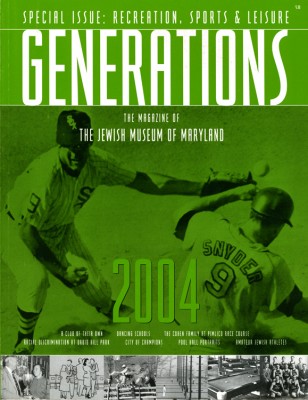
Oral history interviewees are sought as part of the research for each new exhibit. Some of my personal favorite interviews were conducted with young campers, whose enthusiasm for their camping experience helped shaped the look and feel of Cabin Fever: Jewish Camping and Commitment (2005).
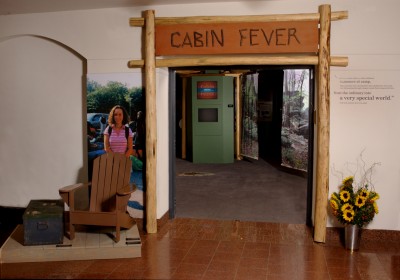
Exhibitions, programs, and publications are all enriched thanks to our vibrant oral history program. We are so excited to have a new corps of trained oral history interviewers who are now capable of collecting new fascinating stories to add to our collections.

3 replies on “The Power of Personal Voice”
I have only just finished reading the piece ever on the topic of Mitzi Swan’s and Mary Coffee’s challenge to segregation in Druid Hill Park. It was by a graduate student at Georgia State University. Her name is Patenaude. Her work should join the collection you have on Swan’s and Coffee’s deed that took courage at the time. I took the trouble of these few lines on Patenaude’s work–looks like a term paper, perhaps–mainly as a historian stumbling on a new source. My interest in the topic is purely as a historian (you may google me if you wish). Best wishes.
Hi Thomas! Thanks for commenting – we are aware of Ms. Patendaude’s work. In fact, we were lucky enough to have Sara here as an intern in our collections department.
Thomas-
Thank you for your kind words! My piece on park desegregation was published in the Maryland Historical Magazine, Summer 2012, p175-202. It is also available on the Baltimore City Historical Society webpage. Please feel free to contact me if you have any questions.